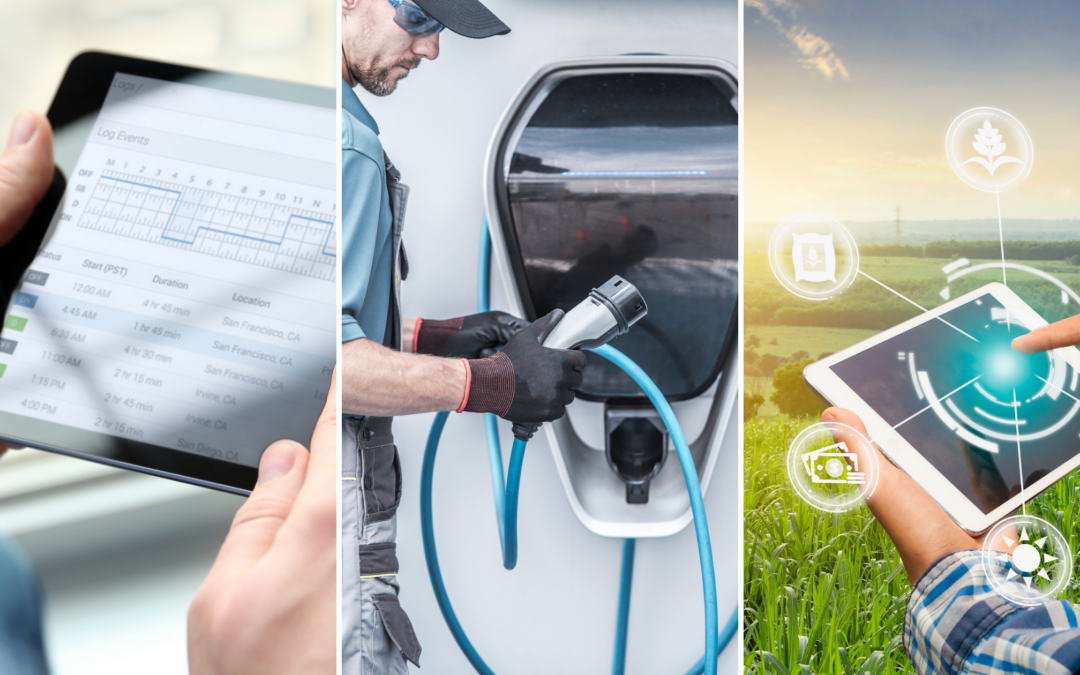This year has a log of changes in the world, especially regulations. In addition to Covid-19 regulations, there are many regulations we have to comply with. The term “changes” also applies to fleet and technology industries this year. In this article, we review critical changes that happened this year to those industries and how these changes will impact your business from next year.
Canada ELD Mandate
2021 is a big year for the Canadian ELD market. This year is the first year of enforcement of ELD regulation in Canada. The Canada ELD (Electronic Logging Devices) Mandate went into effect June 12th, 2021 with a “progressive” enforcement period due to the unprecedented challenges caused by the COVID-19 pandemic and the complexity of obtaining certification in Canada.
With this measurement, the ELD implementation delay has been put on hold until June 12th, 2022 to elevate education and awareness of the implementation of ELD.
We’ve posted an ultimate ELD guide and regulation changes this year. Read full articles and comprehend how ELD regulation works and which ELD service providers you should choose.
- Other related articles
Canada ELD Mandate Update: No ELD penalties until June 2022 – CCMTA
The ultimate guide to the ELD Mandate and how to choose the best ELD
Sustainability
Global warming is becoming a serious issue all over the world and there is no surprise that the fleet industry contributes to this situation. With this fact, efforts to boost sustainability in the transportation sector are increasing, as customers become more likely to weigh the environmental impacts of their purchases and government across the globe draw up more stringent regulations. In addition, the U.S administration had ordered federal agencies to develop tighter fuel efficiency, greenhouse gas, and oxides of nitrogen emissions standards for medium- and heavy-duty trucks in 2021.
More stringent regulations are expected to come next year in the world. Be prepared for any regulation impacting the fleet industry. It’s for sure that the truck industry will need to take the next leap in sustainability no later than 2030 because most countries set vehicle electrification targets by 2030. You can find the Vehicle electrification goals by country in the report from icct.
For emission regulations for medium- and heavy-duty trucks, read our blogs and be prepared for the changes:
How you can save money during the oil and diesel price surge
Biden Proposed Tighter Truck Emission Regulations
Truck industry embracing change due to the emission regulations and high demand for electric trucks
Smart Technology
Connectivity and data management are now set to unleash the next renovation in the history of farming: Smart Farming / Precision agriculture. It enables farmers to collect vast quantities of data and control different equipment or monitor individual animals. Now, farmers are starting to adopt digital technology and data-driven innovations. See how Smart Farming can solve agricultural operational problems.
Smart Technology – Transformation in the Agriculture industry
What do 2022 and the future in the fleet industry look like?
Canada ELD regulation will be fully compliant
All Canadian trucking companies (there are some exemptions from the Canadian ELD mandate) must prepare for the ELD mandate by June 12th, 2022. Violating the regulation could charge you a fine or receive formal warnings. Being compliant doesn’t sound only complicated, but is also beneficial for your fleet operation financially and productively. Leveraging ELD brings many benefits, like more efficient route management, vehicle diagnostics, and minimizing administrative difficulties. Click here to prepare for the ELD compliance with Arpaway’s ELDs.
One in two vehicles sold is an electric vehicle
In the Executive Order by U.S. President Joe Biden, he states that “America must lead the world on clean and efficient cars and trucks. That means bolstering our domestic market by setting a goal that 50 percent of all new passenger cars and light trucks sold in 2030 be zero-emission vehicles, including battery-electric, plug-in hybrid electric, or fuel cell electric vehicles.”.
In 2021, we saw self-driving cars becoming more prevalent as well as carpooling services becoming increasingly popular with people who have car ownership but do not drive often enough to warrant owning a car themselves. Also, major auto manufacturers like Tesla, Volvo, Ford, and Mercedes-Benz manufacture EVs to meet the demand from consumers, contributing to a dramatic reduction in CO2 emissions. As an example, Volvo is committed to producing purely EV’s by 2030.
Not next year, but 2030 would be a milestone in the history of an electric vehicle.
To learn more about electric vehicles, check our blogs.
Contact us today
Email: info@arpaway.com
Tel: +1-888-885-5202

